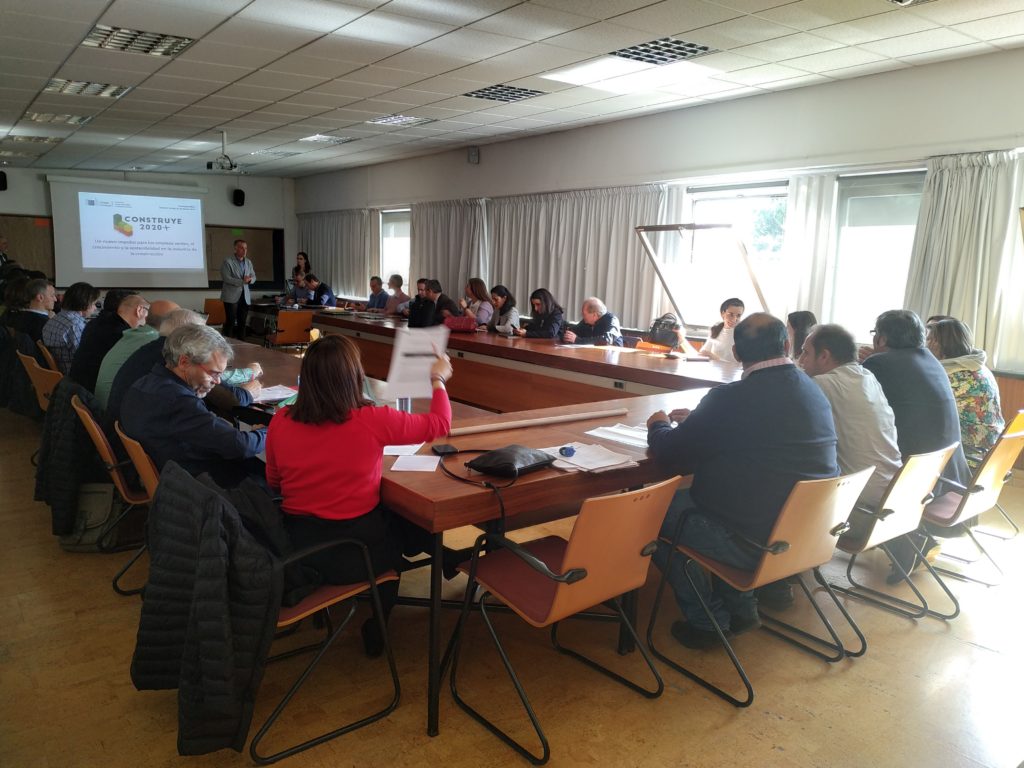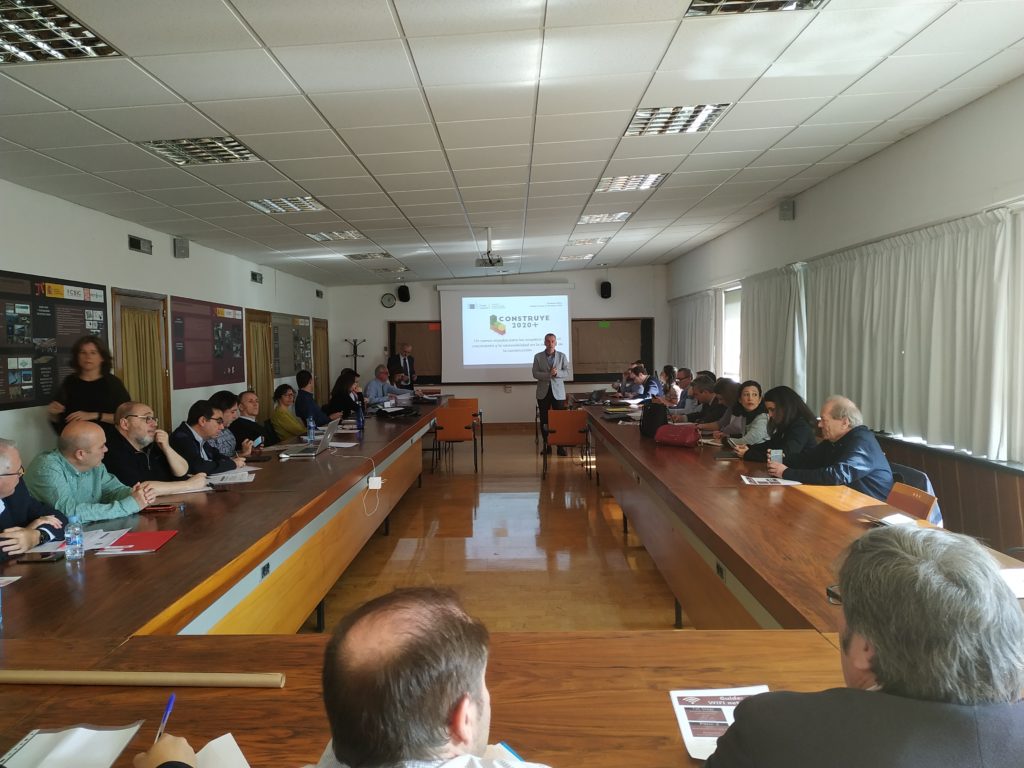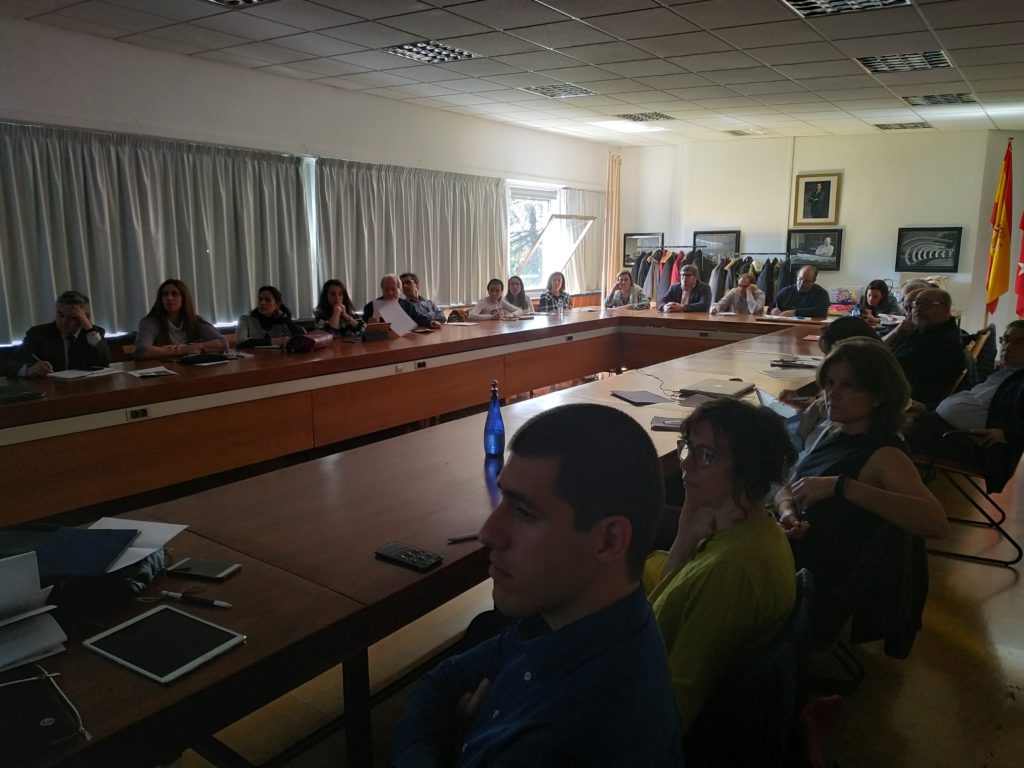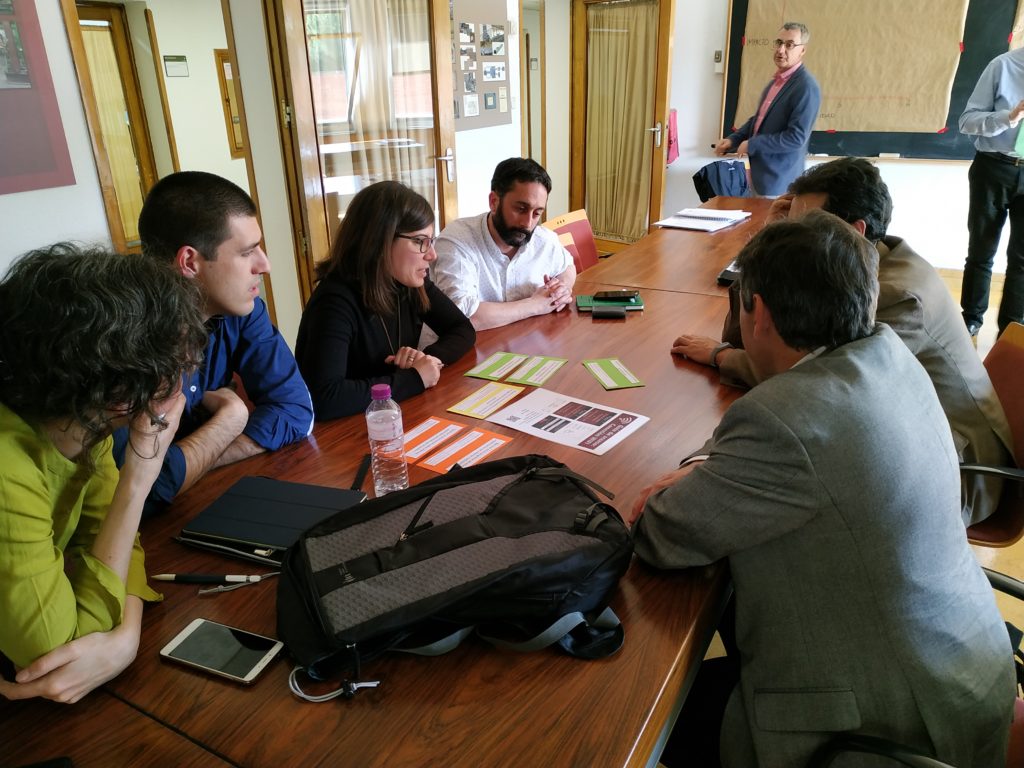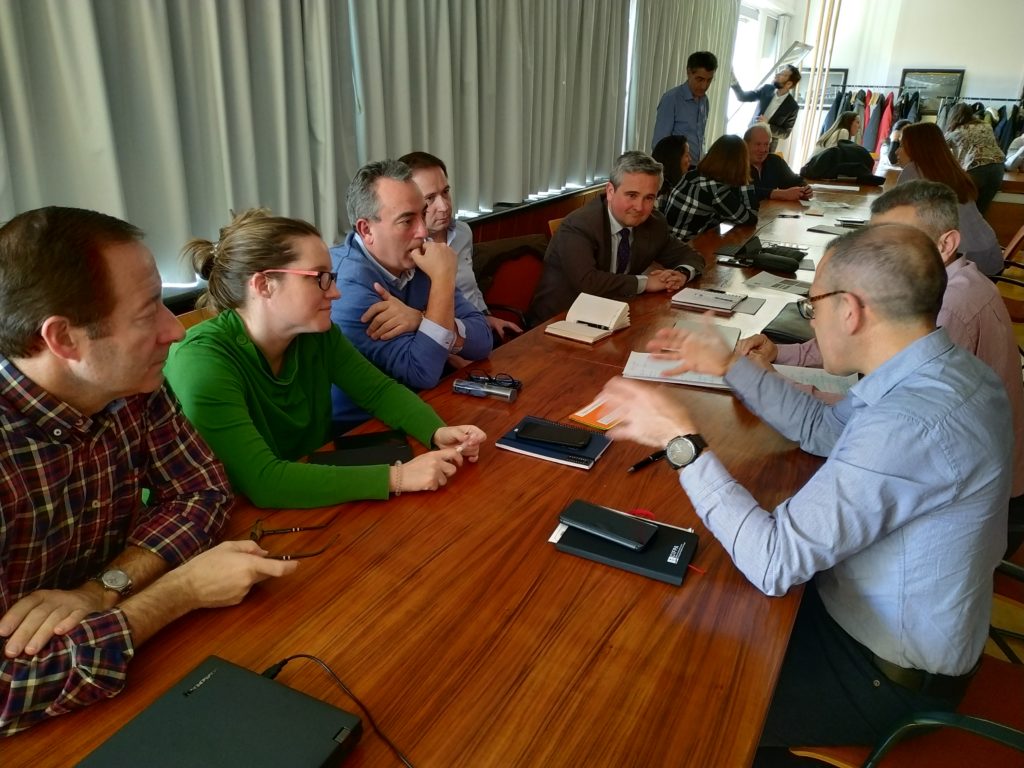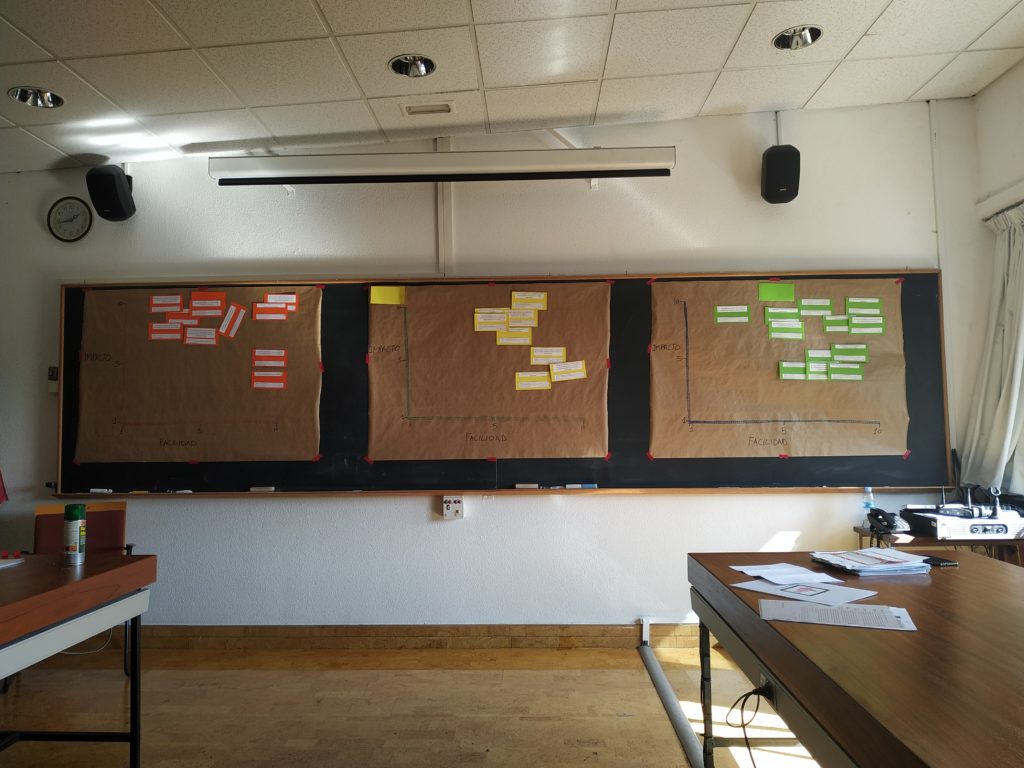
About 40 experts in Politics, Education, Economy, Culture and Environment validate the Quintuple Helix of Construye 2020+
With the consensus of this knowledge exchange network generated in the framework of this European Horizon 2020 project, a Roadmap will be configured to update training priorities towards a sustainable construction sector. About 40 representatives from the fields of Politics, Education, Economy, Culture and the Environment joined last February 21, in a meeting of experts for the validation of the results of the Quintuple Helix, a methodology that has been applied in the European project Construye 2020+ of the Horizon 2020 program, led by the Fundación Laboral de la Construcción. The meeting was held at the Eduardo Torroja Institute of Construction Sciences (IETCC), belonging to the Spanish National Research Council (CSIC), which is one of the partners participating in the project, together with the State Foundation for Employment Training (Fundae), the National Institute of Qualifications (Incual), dependent on the Ministry of Education, Culture and Sport; the Centre for Research on Energy Resources and Consumption (Circe) and the Institute of Robotics and Information and Communication Technologies (IRTIC), attached to the University of Valencia. Teachers, public institutions, construction companies, researchers, social agents, etc., who had participated in the different helixes, validated and qualified some initiatives that the project consortium proposed after the analysis of the five helixes held previously. These initiatives are classified into training needs, dissemination and awareness-raising actions and other recommendations for improvement in the construction sector in terms of energy efficiency, renewable energies and almost zero consumption buildings. Through various dynamics, the meeting promoted debate and the active participation of the participants who contributed and exchanged heterogeneous and very enriching perspectives towards the proposed initiatives, taking into account their impact and easy implementation.Gallery
Galería de la hélice de validación
Iniciativas consensuadas en formación
Ante las necesidades formativas o pedagógicas, los expertos consensuaron 12 acciones hacia:Consensual initiatives in formation
Facing the formative or pedagogical needs, the experts consented 12 actions towards:-
-
- Sustainable transformation of the construction sector and circular economy (initiative derived from the Political Helix).
- Targeted training in energy efficiency and renewable energies (initiative derived from the Political Helix).
- Training in industrialisation and digital transformation (initiative derived from the Policy Helix).
- Course design in relation to energy efficiency (initiative derived from the Social Helix).
- Informative pill: basic concepts on circular economy and the influence of energy efficiency on work or rehabilitation trades (initiative derived from the Social Helix).
- Energy efficiency in blocks of buildings for property managers (initiative derived from the Environmental Helix).
- Cross-cutting module on energy efficiency, renewable energy and sustainability in almost zero-consumption buildings for workers in the sector (“sustainable literacy”) (initiative derived from the Environmental Helix).
- Coordination of companies for comprehensive rehabilitation solutions (initiative derived from the Economic Helix).
- Organisation and transparency in construction works (initiative derived from the Economic Propeller).
- Customer orientation for construction SMEs (initiative derived from the Economic Helix).
- Transversal itinerary for professional families related to construction (initiative derived from the Educational Helix).
- Basic document “green and efficient culture” for possible pedagogical actions towards society in general (initiative derived from the Educational Helix).
-
-
-
- Campaign on measures to control the expenditure of the energy bill and the monitoring of consumption (initiative derived from the Social Helix).
- Campaign on the need for rehabilitation of buildings (initiative derived from the Social Helix).
- Educational dissemination on the economic effect of sustainable building and its added value in the market (initiative derived from the Environmental Helix).
- Sustainable building maintenance for the user (initiative derived from the Environmental Helix).
- Pedagogical dissemination of the benefits of living in a house built with sustainable standards (initiative derived from the Economic Helix).
- Conferences on innovation in vocational training for professional families related to the construction sector (initiative derived from the Educational Helix).
- Dissemination of the existing didactic resources in each professional family related to the construction sector (initiative derived from the Educational Helix).
- Communication campaigns “stimulating vocations ” (initiative derived from the Educational Helix).
-
-
-
- Study of professions susceptible of being exercised by accredited professionals (initiative derived from the Political Helix).
- Linking training policies with energy efficiency, sustainability and the circular economy (initiative derived from the Political Helix).
- Promote the modernisation of the sector (initiative derived from the Political Helix).
- Synergy of energy rehabilitation initiatives at local level (initiative derived from the Social Helix).
- Revision of university study programmes with environmental criteria (initiative derived from the Environmental Helix).
- Application of training credits for the qualification of workers in sustainable construction (initiative derived from the Environmental Helix).
- Channel the information on sustainable housing requested by the user (initiative derived from the Economic Helix).
- Update training courses in the construction sector on energy efficiency, renewable energies and almost zero consumption buildings (initiative derived from the Economic Helix).
- Offering specific and quality courses (initiative derived from the Economic Helix).
- Promote the relationship between training centres and companies (initiative derived from the Educational Helix).
- Concern for young people and training.
-
Comments

